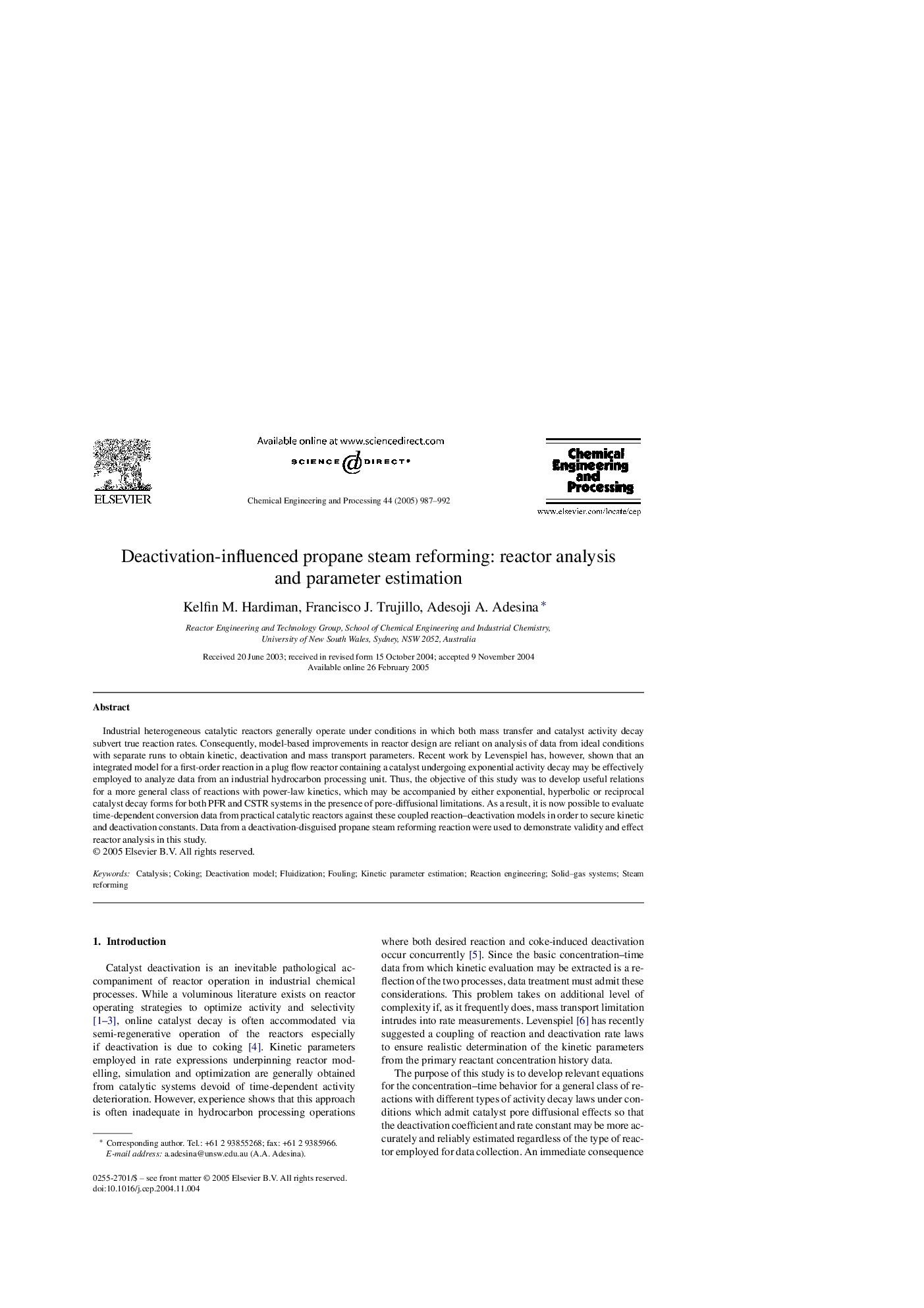| Article ID | Journal | Published Year | Pages | File Type |
|---|---|---|---|---|
| 10397342 | Chemical Engineering and Processing: Process Intensification | 2005 | 6 Pages |
Abstract
Industrial heterogeneous catalytic reactors generally operate under conditions in which both mass transfer and catalyst activity decay subvert true reaction rates. Consequently, model-based improvements in reactor design are reliant on analysis of data from ideal conditions with separate runs to obtain kinetic, deactivation and mass transport parameters. Recent work by Levenspiel has, however, shown that an integrated model for a first-order reaction in a plug flow reactor containing a catalyst undergoing exponential activity decay may be effectively employed to analyze data from an industrial hydrocarbon processing unit. Thus, the objective of this study was to develop useful relations for a more general class of reactions with power-law kinetics, which may be accompanied by either exponential, hyperbolic or reciprocal catalyst decay forms for both PFR and CSTR systems in the presence of pore-diffusional limitations. As a result, it is now possible to evaluate time-dependent conversion data from practical catalytic reactors against these coupled reaction-deactivation models in order to secure kinetic and deactivation constants. Data from a deactivation-disguised propane steam reforming reaction were used to demonstrate validity and effect reactor analysis in this study.
Keywords
Related Topics
Physical Sciences and Engineering
Chemical Engineering
Process Chemistry and Technology
Authors
Kelfin M. Hardiman, Francisco J. Trujillo, Adesoji A. Adesina,
